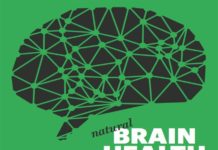
BY CORRINA MOSCA
In today’s increasingly digital world, many Canadians are struggling to concentrate on tasks for long periods of time. According to the Telegraph, a Canadian study revealed that the average human attention span has fallen from 12 seconds in 2000 to a mere eight seconds in 2016.
While the modern lifestyle is partially to blame for this issue, a lack of focus or inability to concentrate can also indicate more deep-seeded issues, including Attention Deficit Disorder (ADD) or Attention Deficit Hyperactivity Disorder (ADHD). While these are commonly thought to only affect children, the Centre for ADHD Awareness Canada (CADDAC) notes that four per cent of adults also exhibit these afflictions. However, poor concentration may also point to stress, exhaustion, anxiety, depression, or even infection.
Whatever your situation, being unable to focus can be extremely frustrating. While pharmaceutical stimulant medications like Adderall and Ritalin are often used to treat the symptoms of ADD and ADHD, some studies are pointing toward natural options, including brahmi, tulsi, and ashwagandha.
BRAHMI – 300MG DAILY
Brahmi (Bacopa monniera) has been used in Ayurveda, a traditional form of Indian medicine, for centuries. Native to the wetlands of southern and eastern India, this perennial creeping herb has been found to treat Alzheimer’s disease, anxiety, allergies, irritable bowel syndrome, backaches, joint pain and epilepsy due to its anti-inflammatory, analgesic and anti-epileptic properties (Stough et al, 2008). Recently, however, its extract has been used to improve memory, fight stress and treat ADHD, with many scientific studies citing it as a possible nootropic with neuroprotective properties.
EVIDENCE FOR BRAHMI
While the exact mechanism of action of brahmi has not yet been determined, scientists believe that its memory enhancing effects may be attributed to its active constituent saponins, Bacosides A and B. These saponins have been found to reverse the amnesic effects of different stresses on the brain. Additionally, brahmi increases the levels of various antioxidants in the brain’s prefrontal cortex, striatum and hippocampus, suggesting that it may have positive effects on memory, executive function and information processing (Battacharya et al., 1999).
A double blind, placebo-controlled study found that taking 300mg of brahmi daily could improve cognitive function in the areas of attention, working memory and psychomotor tasks. The results also showed an increase in information processing abilities, as well as improved memory consolidation (Stough et al., 2008). Another study found that after 90 days of treatment with brahmi, individuals between the ages of 40 and 65 experienced a significant decrease in the rate of forgetting newly acquired information (Roodenrys et al., 2002).
These studies suggest that in individuals struggling with low concentration and decreased attention spans, brahmi may help to increase cognitive function and help keep the mind focused.
TULSI – 300MG DAILY
Also known as Holy Basil (Ocimum sanctum), this aromatic plant is native to the Indian subcontinent. Much like brahmi, tulsi has been revered for centuries in the practice of Ayurvedic medicine due to its ability to augment memory and rejuvenate the system. Today, it is often used for hypoglycaemic, immunomodulatory, antistress, anti-inflammatory and antibacterial purposes. However, tulsi has also been studied for its effects on concentration in recent years (Das and Vasudevan, 2006).
EVIDENCE FOR TULSI
A 2015 placebo-controlled study found that taking 300mg of tulsi daily helped to improve cognition in humans. Subjects were tested on their short-term memory, cognitive flexibility and ability to remain attentive over the course of the study, and were found to have significantly improved during the testing period (Sampath et al., 2015).
An older report found similar results after participants were administered 300mg of tulsi extract for a period of seven days. Specifically, these researchers cited that both the subjects’ acquisition and retention of memory improved (Soman et al., 2004).
From these results, it can be inferred that taking tulsi can help to improve concentration, memory and general cognition.
ASHWAGANDHA – 500MG DAILY
One of the most powerful herbs in Ayurvedic healing, ashwagandha (Withania somnifera) has been a well-known adaptogenic herb for centuries. This plant contains withanolides, which help the body cope with stress, inflammation, high blood pressure and compromised immune function (Chauhan et al, 2013). Due to its stress-relieving properties, many individuals also use ashwagandha to help improve general cognition, including memory and concentration. As such, many researchers are now looking into the substance’s effects on ADHD.
EVIDENCE FOR ASHWAGANDHA
One prospective, double-blind, multi-dose, placebo-controlled crossover study examined the effects of ashwagandha on the body’s ability to handle stress. The results showed that ashwagandha can help to improve neurological baseline functions, as well as possibly repair central nervous system disorders. Additionally, it supported the plant’s status as an adaptogen, as it helps to rejuvenate the nervous system and enhance the body’s resilience to stress (Pingali et al., 2014). By reducing general stress and anxiety levels, the mind is better able to retain attention and stay focused.
A previous study corroborates these results, as it found ashwagandha to improve focus, concentration, memory and general cognitive function (Karnick, 1991). Research indicates that this is due to ashwagandha’s inhibition of the enzyme that breaks down acetylcholine, the neurotransmitter associated with cognition and memory (Katz et al., 2010).
Ashwagandha has also been researched in relation to its effects on children with ADHD. One randomized, placebo-controlled study found that children who were given a combination of an herbal compound containing ashwagandha along with the Ayurvedic healing technique shirodhara (the gentle pouring of liquids over the forehead) had a much greater reduction of symptoms than the group given a placebo (Ojha et al., 2014).











